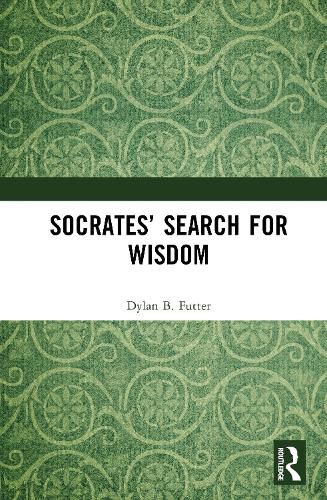Readings Newsletter
Become a Readings Member to make your shopping experience even easier.
Sign in or sign up for free!
You’re not far away from qualifying for FREE standard shipping within Australia
You’ve qualified for FREE standard shipping within Australia
The cart is loading…






Socrates recommends that we live examined lives, but what exactly does that mean? Should we criticise and dismantle our moral convictions? Or construct theories of virtue and the good? This book argues that the answer is neither-the best human life is one of moral learning in which we actualise our potential for knowledge.
Readers will gain a fresh perspective on the Socratic method of philosophy-not as a form of argument, but as a process of inquiry. The author develops and defends a model of exegetical dialogue, situates the account within the scholarly literature, and uses it to illuminate several puzzling features of Socrates' method. In the final section of the book, he demonstrates the model's alignment with Socrates' life and teachings as presented in Plato's Apology. The model of exegetical inquiry casts significant light on the central features of Socrates' philosophical practice and allows for a deeper understanding and appreciation of his philosophical life.
Socrates' Search for Wisdom: An Exegetical Theory will appeal to scholars, students of Greek philosophy, and general readers, reflecting the Socratic tradition of engaging both intellectuals and ordinary individuals alike.
$9.00 standard shipping within Australia
FREE standard shipping within Australia for orders over $100.00
Express & International shipping calculated at checkout
Socrates recommends that we live examined lives, but what exactly does that mean? Should we criticise and dismantle our moral convictions? Or construct theories of virtue and the good? This book argues that the answer is neither-the best human life is one of moral learning in which we actualise our potential for knowledge.
Readers will gain a fresh perspective on the Socratic method of philosophy-not as a form of argument, but as a process of inquiry. The author develops and defends a model of exegetical dialogue, situates the account within the scholarly literature, and uses it to illuminate several puzzling features of Socrates' method. In the final section of the book, he demonstrates the model's alignment with Socrates' life and teachings as presented in Plato's Apology. The model of exegetical inquiry casts significant light on the central features of Socrates' philosophical practice and allows for a deeper understanding and appreciation of his philosophical life.
Socrates' Search for Wisdom: An Exegetical Theory will appeal to scholars, students of Greek philosophy, and general readers, reflecting the Socratic tradition of engaging both intellectuals and ordinary individuals alike.